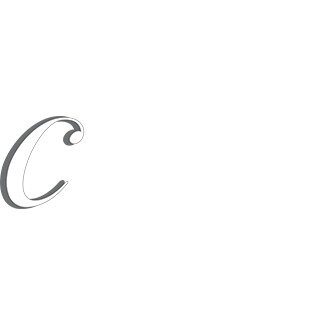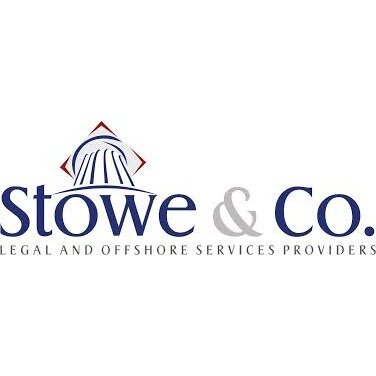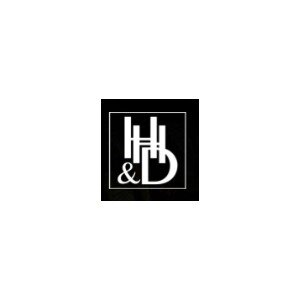Best Sanctions & Export Controls Lawyers in Roseau
Share your needs with us, get contacted by law firms.
Free. Takes 2 min.
List of the best lawyers in Roseau, Dominica
About Sanctions & Export Controls Law in Roseau, Dominica
Sanctions and export controls are laws and regulations designed to manage and restrict the movement of goods, services, currency, and technology across borders. In Roseau, Dominica, these laws ensure the compliance of local businesses, individuals, and government bodies with national and international obligations. Sanctions may be imposed against specific countries, organizations, or individuals, often as a part of international policy decisions. Export controls restrict the exportation of certain goods or technologies, especially those that could impact national security or violate international treaties.
Why You May Need a Lawyer
Legal advice regarding sanctions and export controls is essential in a range of situations. Common scenarios include:
- Engaging in international trade or export of goods from Dominica
- Receiving funds or goods from countries subject to international sanctions
- Expanding business operations abroad
- Handling dual-use goods or technology that may be subject to restrictions
- Responding to inquiries from government enforcement agencies
- Navigating compliance risks related to international partnerships
- Dealing with blocked accounts or assets due to sanctions
An experienced sanctions and export controls lawyer can help you understand regulations, avoid penalties, obtain necessary permits, conduct due diligence, and represent you in case of enforcement actions.
Local Laws Overview
Sanctions and export controls in Roseau, Dominica are governed primarily by national legislation such as the Money Laundering (Prevention) Act and regulations related to the movement of goods, as well as compliance with United Nations sanctions and international treaties. Dominica, as a member of the Eastern Caribbean States, aligns its regulations with international standards and may implement sanctions resolutions adopted by the United Nations Security Council. Local authorities, such as the Financial Services Unit (FSU) and the Customs and Excise Division, enforce these regulations. Export controls focus particularly on sensitive items, including arms, dual-use goods, and advanced technologies, and require businesses to maintain compliance records and seek licenses where necessary.
Frequently Asked Questions
What are sanctions and export controls?
Sanctions are restrictions imposed on countries, entities, or individuals to achieve foreign policy or national security objectives. Export controls are regulations that limit what can be exported from Dominica, especially items that may be dangerous or sensitive.
Who enforces sanctions and export controls in Roseau, Dominica?
Sanctions and export controls are enforced by agencies such as the Financial Services Unit and the Customs and Excise Division, with oversight from the Ministry of Finance and international cooperation bodies.
What goods are subject to export controls in Dominica?
Goods subject to controls include arms, military equipment, certain chemicals, and dual-use technologies, as well as items restricted under international agreements.
Can I export goods to any country from Dominica?
No, exports to countries or entities subject to sanctions by Dominica or the United Nations may be restricted or prohibited. It is important to check current sanctions lists before proceeding.
Do I need a license to export controlled goods?
Yes, if you are exporting goods that are on the controlled items list, you must apply for and obtain the appropriate license from the relevant authorities.
What are the penalties for violating sanctions or export control laws?
Penalties can include heavy fines, seizure of goods, suspension of business licenses, and, in some cases, criminal prosecution.
How can I find out if a particular country is under sanctions?
You can check with the Financial Services Unit or consult the United Nations Security Council's sanctions lists to determine whether a country is subject to restrictions.
Do individuals need to be concerned about sanctions and export controls, or is it only businesses?
Both individuals and businesses doing transactions involving goods, funds, or technology across borders must comply with these laws.
How often do sanctions or export control regulations change?
Regulations can change frequently, especially in response to international events or United Nations resolutions. It is important to stay updated through government announcements or legal counsel.
What should I do if I suspect a violation has occurred?
Seek immediate legal advice. Voluntary disclosure to authorities may reduce penalties, but guidance from an experienced lawyer is essential.
Additional Resources
For further information or support, you can contact or consult the following resources:
- Financial Services Unit (FSU) of Dominica - Oversees anti-money laundering and sanctions compliance
- Customs and Excise Division - Handles export permits and goods inspections
- Dominica Ministry of Finance - Policy oversight and updates on regulatory changes
- Eastern Caribbean Central Bank (ECCB) - Regional financial compliance and updates
- United Nations Security Council Sanctions List - For up-to-date international sanctions measures
Next Steps
If you believe you may be affected by sanctions or export controls in Roseau, Dominica or you need clarity on compliance requirements, consider the following steps:
- Identify the nature of your transactions and business relationships
- Review current sanctions and export control lists relevant to your goods or partners
- Gather all necessary documentation related to your exports or international dealings
- Contact a local lawyer with expertise in sanctions and export controls law
- Follow your lawyer's advice concerning disclosures, permit applications, or compliance best practices
Seeking legal advice early can help you avoid costly penalties and protect your business or personal interests. A lawyer will guide you through each step, providing peace of mind and ensuring you remain compliant with all applicable laws and international obligations.
Lawzana helps you find the best lawyers and law firms in Roseau through a curated and pre-screened list of qualified legal professionals. Our platform offers rankings and detailed profiles of attorneys and law firms, allowing you to compare based on practice areas, including Sanctions & Export Controls, experience, and client feedback.
Each profile includes a description of the firm's areas of practice, client reviews, team members and partners, year of establishment, spoken languages, office locations, contact information, social media presence, and any published articles or resources. Most firms on our platform speak English and are experienced in both local and international legal matters.
Get a quote from top-rated law firms in Roseau, Dominica — quickly, securely, and without unnecessary hassle.
Disclaimer:
The information provided on this page is for general informational purposes only and does not constitute legal advice. While we strive to ensure the accuracy and relevance of the content, legal information may change over time, and interpretations of the law can vary. You should always consult with a qualified legal professional for advice specific to your situation.
We disclaim all liability for actions taken or not taken based on the content of this page. If you believe any information is incorrect or outdated, please contact us, and we will review and update it where appropriate.











